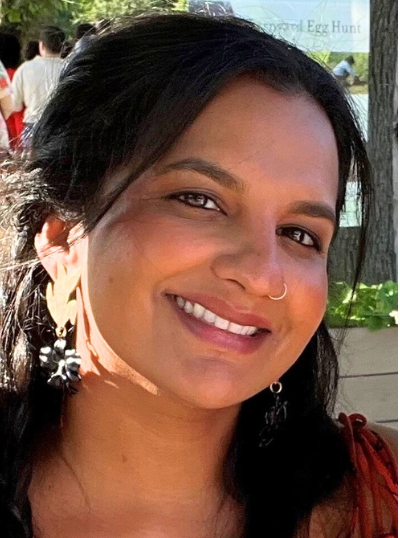Dr. Kavita Rajasekhar is an assistant professor of teaching in population health sciences, program director of the Preventive Medicine Residency Program, and assistant medical director of Workforce Health & Safety at NewYork-Presbyterian (NYP). Previously, she was the senior director of the Public Health/Preventive Medicine Residency Program at the NYC Department of Health and Mental Hygiene.
How did you first become involved in your field?
I’ve always been passionate about the concept of lifestyle medicine and how our daily activities are conducive to our well-being. During medical school, I was further drawn to community-oriented work. I didn’t know that preventive medicine was a specialty until after medical school, and my residency training at the Icahn School of Medicine at Mount Sinai was a great way for me to find my place in the field. While I really appreciate the individual patient-physician connection, I wanted to work from an upstream perspective focused on identifying prevention strategies for entire communities.
What expertise do you bring to this role?

Dr. Kavita Rajasekhar
My career includes roles dedicated to medical education and worker health. I’ve previously served as the medical director of employee occupational health services at the University of New Mexico and as associate medical director of the worker health protection program at the Barry Commoner Center for Health and the Environment at CUNY Queens College. I strive to balance and assess the various components of worker health, including worker wellness, environmental health and safety, and accessibility of services for workers. Creating a safe and healthy work environment takes several players, and I’m excited to be part of that team at NYP.
As an educator, I’ve been active at the residency level, alongside medical students, but have also taught at the undergraduate level. In hybrid and remote settings, we’re still learning how to share information and create an educational experience that feels like an exchange of knowledge and learning. In teaching at CUNY Queens College during the pandemic, I became more conscious of equity issues in education and how faculty members can better address those challenges. I’ve also led and been part of the faculty at residency programs, where I was responsible for mentoring residents and medical students and building curricula for public health/preventive medicine physicians. In undergraduate education, it has been fulfilling to see young minds think about public health formally, perhaps for the first time, and ensure their education is interdisciplinary.
What brings you to Weill Cornell Medicine?
This job is perfect for me in that it combines my worker health and residency education experience. My role at NYP allows me to aim toward ensuring every worker feels healthy, happy, and satisfied with their work. Like the NYC DOHMH, WCM upholds the goal of training successful preventive medicine physicians who can address public health challenges in NYC and beyond. There are already a lot of well-established educational programs in our department and widely at Cornell, and it will be exciting to collaborate with other educators in developing our program.
Are there any trends or issues you are currently following in your field?
I’m on the board of a nonprofit that looks at the connection between human, animal, and planetary health. The pandemic is a perfect example of that relationship, and I think it’s a fundamental topic for our residents to think about when addressing public health. Our health is interdependent, especially in a city where we constantly interact and cross paths with one another.
When looking at residency education or worker health, there is also increasing acknowledgement of burnout in medicine. I’m interested in exploring the various facets of worker health, especially concerning communicable and chronic diseases in a worker population.
I’ve always been interested in the idea of food as medicine as well. In recent years, I attended the Institute for Culinary Education and participated in a plant-forward health-supportive program at their Natural Gourmet Center. The program looks at how we can use the healing properties of food in our daily lives. We often forget that food is not simply about nutrients but is also a source of enjoyment and community. Food is healing, in part because it is experiential. It’s an important thing to consider when we’re addressing worker health, chronic disease epidemics, or bringing people together to address the loneliness crisis.
- Highlights

